How to Select an Executive Coach Who Is Right For You
So you want to select and engage an executive coach for professional development and performance improvement?
There are essentially six things you need to consider:
This video introduces, describes, and summarizes the six videos in this Wiznami series. Each video focuses on one key element that you need to consider in selecting and beginning with a professional executive coach. The video allows you to understand the big picture flow of the video series. It is best viewed in sequence and this video will help you anticipate the next topics for consideration. See the rest of the videos on the Gary Myszkowski YouTube channel or on www.http://wiznami.com/videos.shtml.
Identifying the Need for Coaching
Unless you are like some of the early adopters of executive coaching back in the 1990s who used their executive coach as a status symbol much like a trophy wife (or trophy husband, or child), you need to be clear about what you want out of a presumably successful coaching process.
Be clear about why you want to engage in coaching and what you want as an outcome. Consider your definition of this need to be preliminary. Sometimes we refer to this as the "presenting need." Once you engage in an effective coaching process, you may learn more about yourself and identify some other related developmental needs or goals that you discover and are motivated to pursue.
This video reviews the 6 most common needs addressed by executive coaching. It is intended to broaden your understanding of how executive coaching can be adapted to your needs and what some of the alternatives might be. It is intended to also help you clarify your type of presenting needs and the implications for adapting the executive coaching process to it. This is Video 1 of 6 of the Wiznami series "How to Select an Executive Coach Who is Right for You" on the Gary Myszkowski YouTube Channel.
These are the six most typical reasons why business people engage in coaching:
1. Situation-specific Need

There is a specific pressing developmental need that has been identified. Examples include: reducing micromanaging behavior and improving delegation; learning to effectively coach others on your team; managing up; influencing a specific difficult peer; preparing for a major presentation; or for more senior executives, learning to influence more effectively horizontally in a matrix organization.
The situation is specific enough or the need has been accurately defined by others and/or by you to your satisfaction that further assessment or confirmation is not necessary. There are also no other pressing or apparent development needs that you are interested in pursuing at this time.
However, accepting a "presenting need" at face value can also have some significant down sides. The executive and coach may be addressing the wrong need - not the primary need that other key stakeholders who must effectively interact with the coachee would have picked. As a result, while a more comprehensive 360° feedback process might not be initially warranted, feedback from a few key stakeholders, including the HR partner, is usually very valuable.
2. Accelerated Development

Companies identify individuals as possessing "the right stuff" (competencies) for future advancement. They are often called "high potentials" or "high pots." If these people have promise for the future, we want to get them there as soon as possible. This need almost always fundamentally involves individualized, customized coaching. Sometimes it is individual coaching to supplement a group learning process, such as action learning - the facilitated solving of a real business problem where the achievement of intended developmental outcomes is equally important.
Typically, the developmental assessment focuses both on the coachee's current role as well as the additional competencies or different competencies that will be needed in the next likely roles. Many key competencies that made the high potential manager successful in the past will not make him or her successful in a larger, more complex, or qualitatively different role. The developmental needs identified and addressed are both current and forward looking. What are your developmental needs now, and what will they be in your next most likely future roles?
The Genesis of Individual Executive Coaching
One of the reasons individual executive coaching increased in popularity was the discovery by companies that if they put their entire cadre of high potential mangers through the same group learning experience, the group experience alone only allowed the participants to learn so much. The group learning process addressed only common learning needs. It did not address individual developmental needs beyond the common content.
When the group learning was also supplemented with the engagement of each participant in limited individual coaching, the applied learning was accelerated. In addition to the common intended learning outcomes among the group, the near term developmental needs of each individual participant was also addressed. Using additional 360° feedback and other leadership and personality assessments, the implications for integrating the intended learning outcomes from the group sessions became more real and relevant. The executive coach worked closely with each individual executive to synthesize the findings from the assessments, integrated the individual and group developmental objectives, aligned the individual developmental actions with the intended learning from the group sessions, and developed and implemented an individualized development plan. A recent example is ConAgra's Leadership Excellence Series, for which Dr. G served as an individual executive coach for multiple waves of participants.
3. Managing Organizational Change

In today's business environment, the world around you can change quickly. Businesses are notoriously bad at managing rapid or significant change. Having a "guide by the side" who is experienced in change management can help immensely.
As an example, see the client testimonial of Frank van Schaayk, then CEO of McCain Foods USA.
The Wiznami® version of "A General Model for Managing Organizational Change" is presented elsewhere in this website.
4. Taking Charge of a New Management Role and Team

Sometimes we call these "executive transitions." [Unfortunately, some people use a similar term for outplacement or termination]. For supervisory and first level management jobs, effectively managing the first 90 to 100 days is sufficient. For jobs with more discretionary decision-making, for new managers and executives who are expected to make changes to the business to improve its performance, "taking charge" may require up to five quarters before they have really figured out what they have gotten themselves into. They need time to test and refine how to successfully implement the fewest changes that will make the greatest difference, given the estimated time and resources they have in their given situation. [See Three Waves of Change℠]
5. Remedial Coaching

This coaching is for business executives who are valued resources but something is interfering with their ability to make the kind of contribution others hoped or assumed they would make. These folks are not considered to be "damaged goods," but they are considered to be on the road to possible derailment if they do not change. They are worth investing in to see if they can be "turned around." Typically they have clashed significantly with the predominant culture or politics, they have some blind spots, or they possess some internal demons that contribute to self-defeating behaviors or unintended undesirable consequences. For seasoned executive coaches who excel at this kind of intervention, the success rate is typically about 33%.
6. Interpret a 360° Survey or other Leadership-related Assessment.
Some people just want greater awareness without necessarily engaging in any systematic developmental change. If all you want is someone who can interpret the likely meaning and implications of a 360 degree feedback survey, the Myers-Briggs, or some similar type of assessment instrument, find someone who has been certified to interpret the survey and select them. If they have been properly certified, they are aware of the strengths and limitations of the survey tool and will not over-interpret or over-generalize the results.
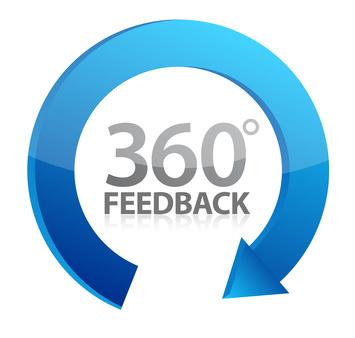
In contrast, a qualified interpreter can give you a realistic understanding of the results, their likely implications, and present the results as a likely hypothesis to be further tested, validated, refined, or recalibrated when compared with other information about the coachee. The assessment is one piece of a much larger puzzle.
Also keep in mind that there are many more people who can reasonably interpret a 360° survey or other popular assessment instrument than can provide effective individual coaching. Beyond interpretation, an effective, expereinced executive coach cna help you translate the implications of the survey or integrated assessment results into a behaviorally-detailed action plan and then provide follow-on individual coaching to enable you to actually change. Assessment and coaching are two different, but related, skill sets.
While simply receiving an accurate and valid interpretation of one (or more) of these assessment instruments is valuable and enough for the needs of some people, not comparing the results with other information about you and not systematically integrating the findings into some form of developmental action plan with some follow-up qualifies as something less than "coaching lite." Typically this is "nice to know" information that ultimately results in little actual development or change in the coachee. As was determined years ago in counseling and therapy research: Insight does not necessarily lead to behavioral change.
[For more senior executive positions, I highly recommend using a 360° feedback interview process facilitated by a seasoned, experienced senior executive coach. More on that elsewhere].

Red Flag:
Uncertified "amateurs" will tend to pigeon hole you into a box. From one assessment, they will jump to the conclusion that they know a lot more about you than you do. ("Oh you are a 'D' or an 'I'. Let me tell you about yourself"). At times, it can feel like the feedback process is bordering on a parlor game or visiting a fortune teller.
Make sure your coach is certified and experienced in the use of the feedback survey or assessment instrument.
Keep in mind that only psychologists and others with advanced training in the American Psychological Association's accredited testing and assessment programs are certified to interpret personality tests and more advanced assessment instruments.
Toxic Elements
The Board of a well-known financial institution (which will go nameless) recently recommended that the top executive team needed to be more aggressive in its talent management efforts. To appease the Board and demonstrate some symbolic beginning talent management leadership, the entire top executive team completed individual 360° survey and feedback debriefing processes. Once the top executive team completed the process, this pilot process would be selectively cascaded out to the rest of the executives and managers.
I was asked to debrief five out of the nine top executives regarding their respective 360° surveys. There were several executives who had some disturbing ongoing conflicts with others or disconnects with their direct reports. Only one out of the five executives asked for some additional coaching and then abruptly changed his mind.
When I asked the new head of Talent Management if she thought there would be additional interest in coaching, she stated, given the previous history of the company's culture, stimulating interest in more than just "nice to know" feedback would be a significant challenge, but a challenge she was prepared to pursue. Historically, an executive was only offered an executive coach as a last ditch effort to save them before they derailed. It was suspected that the offer of coaching was used often as a preemptive strike against a possible law suit for termination. Any executive who was acculturated equated executive coaching with a sign that they were in real trouble, or as a sign for a need for significant remediation at best. The head of talent management intended to change that culture. She was gone less than 18 months later.
Different business cultures view being involved in executive coaching in very different ways. Some view it as an investment in the executive who is highly valued by the company. Others view it as an indication that there is some problem with the executive. And other cultures are somewhere in between the views. This video briefly explores how the coaching process may be adapted given the cultural context you are performing in. This is Video 2 of 6 of the Wiznami series "How to Select an Executive Coach Who is Right for You" on the Gary Myszkowski YouTube Channel.
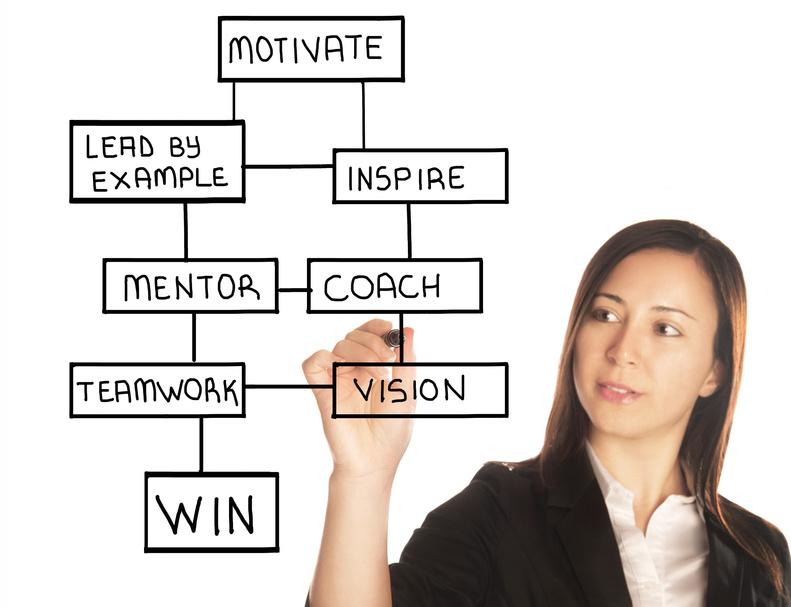
A Fertile Environment
In sharp contrast, another fast moving company offered executive coaching to people who were considered to be high potentials with the intent to accelerate their development towards advancement. Incumbents at the Director and VP levels became concerned if they had not been offered the opportunity to work with an executive coach. To not be offered a coach was perceived to be a sign that they were being overlooked or passed over for advancement.
How Visible Should the Coaching Process Be?
Beyond situational or remedial coaching, you need to decide your comfort level with having a visible executive coach. For more comprehensive coaching processes, this will include a coach interviewing your 360° stakeholders at least by telephone.
If the limited presence of an executive coach is not culturally accepted as a positive sign, you may want consider a form of low visibility coaching ("shadow coaching") where the usual feedback about your performance, leadership, or influence skills are not overtly collected. The down side of this approach is that you and the coach may not have fuller access to the perceptions and expectations of each individual key stakeholder. This will limit your ability to obtain an accurate reading on how you are perceived by others and their insights to what you need to do differently. You and your coach run the risk of operating in your own little bubble disconnected from the rest of your world.
Also, a seasoned coach uses 360° interviews to shape expectations of the respondents and not just to collect information. (More on that here).
To visibly reinforce a fertile environment, it never hurts to have a senior sponsor, preferably a line executive, communicate overtly that executive coaching is considered to be a valued investment in the manager or executive coachee and that a positive return on that investment is expected. Supportive aircover always helps.
Given your need, are you ready to fully engage in the coaching process?
Assessing your readiness addresses two fundamental questions:
1. Are you ready to accept feedback about yourself that may not fit with your idealized or desired image of yourself?
2. Are you prepared to carve out the time necessary among your many competing demands to fully engage in the learning process that executive coaching typically is?
Video 3 addresses both the challenges of receiving uncomplimentary feedback or appreciating the perceptions of others that do not agree with our perceptions of ourselves, as well as the need to commit the necessary time and attention to achieve developmental progress and change. This is Video 3 of 6 of the Wiznami series "How to Select an Executive Coach Who is Right for You" on the Gary Myszkowski YouTube Channel.
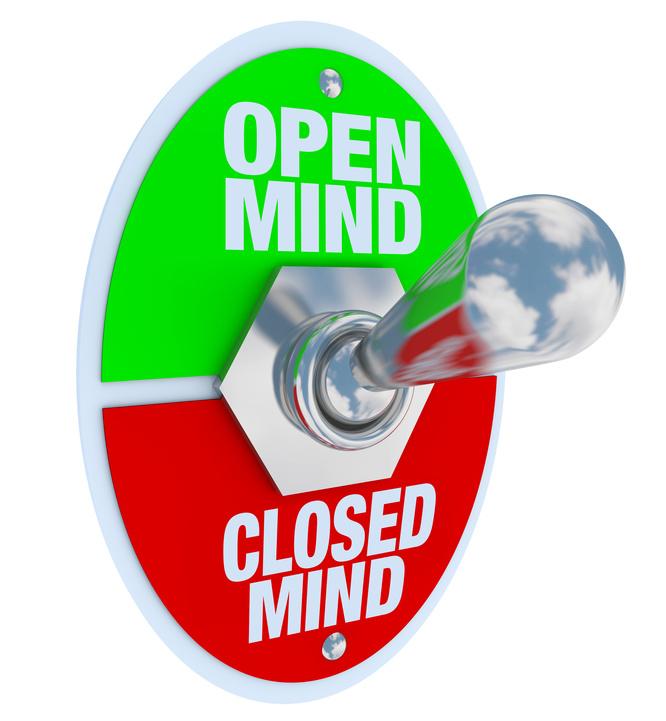
1. Ready to Accept Feedback
Are you ready to experience that inevitable awkward stage where your new behavior has lots of rough edges, which is apparent to you and everyone else who sees it?
Are you ready to accept feedback that may conflict with how you see yourself - your "idealized" self image? Or are you immediately defensive?
In some skill or behavioral areas, others may perceive you as being more effective you than you see yourself. In other areas, you may think you "walk on water" and the other people who interact with you perceive you as at least being "up to your waist" (and hopefully not drowning).
What's the worst case scenario? Getting bad news about you that is upsetting. Keep in mind this happens in a small number of coaching cases. So how does one handle this if it occurs?
A CFO Sent Reeling From His Surprisingly Negative Feedback
A CFO who received very negative feedback about how he treated his direct reports ("a steam roller who never looks back to see if the road kill is still twitching") described his journey to finally accepting the feedback this way:
"Its a bit like the process of 'death and dying.'
First you are in denial. The people who perceive and declare your weaknesses must be wrong, and you create a laundry list of reasons and rationalizations to prove them wrong.
Then there is anger. 'After all I have done for them, how could they treat me this way?'
Then there is bargaining. 'If I made some minor changes maybe that would affect how they see me and correct some of their misperceptions (I am still essentially OK and otherwise only need to engage in minor changes).'
Finally there is depression. 'It really is a side of me that I am ashamed of. I am overly harsh with others and I don't fully understanding why.'
And then there is acceptance. 'Everyone has blind spots and in some cases personal demons. If I don't control these, and improve my interpersonal skills, they will never select me as the CEO. I am committed to doing whatever I have to, no matter how difficult, to change.' "
Achieving "acceptance" required six coaching sessions after the CFO received his feedback and began implementing his development plan.
A few years after being intensely self-aware and self-correcting, the Board of Directors selected him as the CEO. After serving successfully as CEO for a typical CEO life span, he retired in good graces with a successful legacy.
The Typical Experience is Much More Balanced and Positive
Most participants in 360° feedback report about 70% of what they understand from the feedback is consistent with a realistic balanced view they have of themselves, warts and all. Another 10 to 15% of the feedback they view with some skepticism (either positive or negative feedback), having to think about the possible special situations when they might behave a certain way, without dismissing it. Another 5 to 10% is a blind spot - something others clearly see but the executive does not perceive in him or her self. And another small percentage of the feedback is not easily understood and does not align with any of the other information we have about the typical behavior of the executive. So the last portion is set aside and often dismissed as unintelligible.
The most common "ah ha!" that participants express is: "I kind of knew that was an issue, I just didn't realize how strongly people felt about it!"
Executives who are open to learning new facets or aspects of themselves find the the coaching process is an opportunity to peel back a few layers of the onion and discover new strengths as well as new vulnerabilities that need to be accommodated for or addressed - both contributing to greater flexibility, adaptability, and success.
The Higher You are in the Management Structure, The Less Likely You are to Receive Honest and Balanced Feedback
Most business people assume that the little boy who shouted out that the emperor had no clothes quietly disappeared shortly thereafter. Its safer if the messenger is a potentially disposable external third party, such as an executive coach.
2. Willing to Carve Out the Time to Fully Engage in the Process

This is a matter of commitment and involvement. You will have many competing demands on your time and this issue is analogous to joining a health club. Lots of people join (especially after New Year's resolutions) and few show up on a regular basis after January.
No professional coach will ask you to turn yourself inside out and try to change you to become someone you are essentially not. So most of the changes you will be attempting will in most cases be incremental and require practice until they become almost automatic.
You will need to be willing to carve out the time to both participate fully in the coaching sessions on a regular basis as well as pursue opportunities to try new behaviors, influence tactics, and other new approaches in between sessions.
As you learn to try to become more "self-aware and self-correcting," you will miss opportunities to substitute new, more effective behaviors. So learning and change will tend to be more incremental and progressive. But you have to have the mental and emotional energy to apply these changes in the midst of performing your role.
If you have too many professional or personal demands on your time to the point where you are feeling almost overwhelmed, supportive coaching might be helpful, but it may not be the right time for becoming involved in a more systematic developmental coaching. This should be discussed up front with your coach and also with your sponsor (if applicable). This will set more realistic expectations about what kind of progress you can reasonably achieve. You and the coach should be monitoring progress on a regular basis. Also, your sponsor and HR Partner will be interested in whether you are making progress and whether there is an apparent return on this investment.
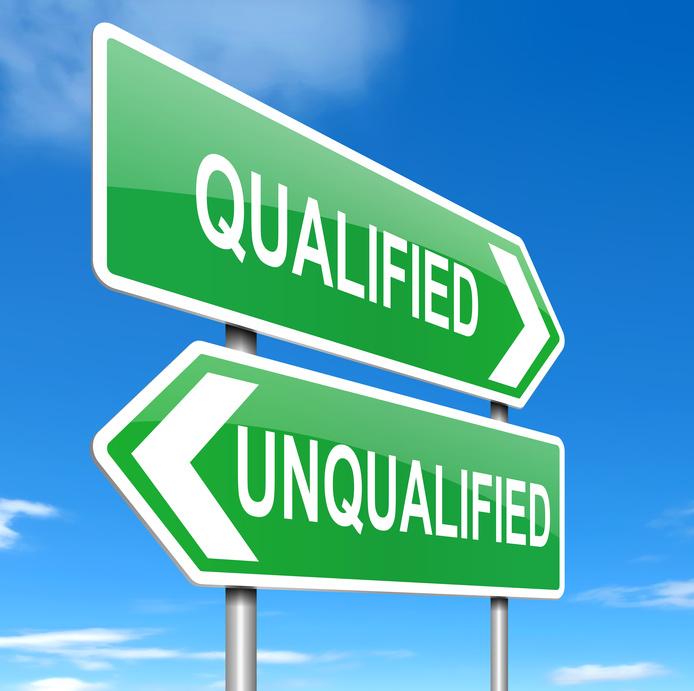
Vetting and Selecting Executive Coaches
If you are an HR professional responsible for vetting coaches, you are usually looking for several candidates who, at a minimum, have previously coached with managers or executives at a similar level to the executive that you are trying to support and have a track record of success in coaching executives around similar presenting needs. You can add a lot of value to the executive by narrowing the field of possible candidates down to a few for the executive to further qualify. Obviously, you will want to screen them before you present them to your executive client.
If you are an individual executive searching for your own coach without HR support, your best bet is to find a network of independent coaches who will help identify your presenting need and recommend a short list of qualified, proven, and trusted executive coaches.
Through Wiznami Inc, I have access to a number of experienced and trusted executive coaches. I also work closely with Executive Core, LLC, a global network of independent executive coaches and executive education facuty (many previously certified by the now defunct-due-to-acquisition firm of Lore International). The Association of Corporate Executive Coaches (ACEC) qaulifies very senior and broadly experienced executive coaches only, and the Internation Coach Federation which certifies a broader array of coaches, many in the early stages of entering the field, are also alternative resources. There are many other certifying bodies, all self-proclaimed.
Ideally, you should be identifying several qualified coach candidates and allow the person to be coached to make the final selection. I will explain why elsewhere.
Video 4 reviews the questions you should be trying to answer when vetting or selecting an executive coach, as well as some of the red flags that should cause you concern. This is Video 4 of 6 of the Wiznami series "How to Select an Executive Coach Who is Right for You" on the Gary Myszkowski YouTube Channel.
So here are the typical questions you should be asking yourself as you interview each coach candidate:
1. Do they understand my presenting problem or need?

After I briefly describe my need, does the coach ask useful questions to probe and define the need more completely?
Are they asking relevant questions for greater understanding?
Do they seem to be pursuing a differential diagnosis of what the root cause of this problem might be - one set of issues and not other?
Do they begin to define my need or ineffective behaviors in terms of "what behaviors or interactions, in what situations, and with what stakeholders?"
By their questions and comments, can they offer new insights or realistic alternatives or possibilities for improvement?
2. Have they coached other executives with presenting needs similar to mine?

Has this coach addressed these challenges more than once?
From their experiences, what have they learned and what insights have they developed about what works and what doesn't work?
What other hypotheses about the root causes and possible solutions do they have that they would want to test early in the coaching process?
Have they worked with others at my level of management before?
Some coaches have lots of experience dealing with middle managers and management skills. Fewer have had experience with VPs, officers, and the C-suite. Still fewer have coached senior executives with lots of discretionary decision-making who are attempting to lead significant change or transformation. Just because someone has coached at a certain level of management does not mean they have experience dealing with challenges like yours. Keep probing for confirmation that they have. You don't want to be their first experience.
3. Given their initial understanding, what reasonable diagnostic process would they propose next? What would they propose as a follow-on coaching process?
Unless your need is extremely situational or well-defined (for example, "help me prepare for this major presentation"), you will want to validate the need and make sure that the right need is identified or the definition of the need is framed in the most accurate way.
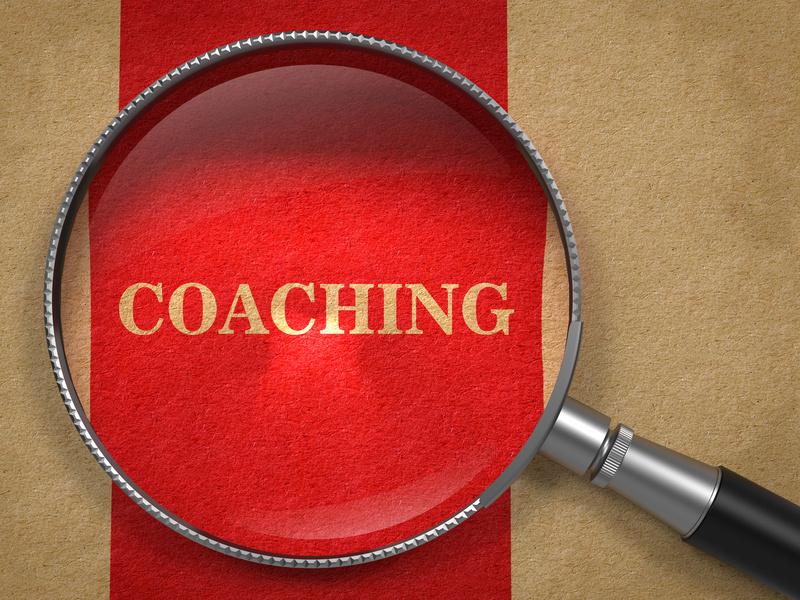
Effective performance does not happen in a vacuum. You will want feedback from other people that you must interact with effectively in order to perform your role.
What does a typical coaching assignment for your presenting need look like?
What can I expect as the most probable steps in the process?
How do they evaluate whether the coaching relationship is a good fit?
How do they evaluate progress?
When is the coach no longer needed? When is the coaching process completed? When does the coach go away?
How does development continue without them?

Red flag:When a coach suggests that the cadence of once-a-month sessions is adequate.
The typical cadence of a continual coaching process is every two to three weeks. This can vary according to the developmental actions and the frequency with which the executive can plan for and experiment with new behavior. Once-a-month is typically out-of-touch.

Red flag:The coach wants to be "joined with you at the hip."
While selective observations of the executive's team meetings or interactions with other key stakeholders can be valuable, it is usually not necessary as a data collection technique - especially in confidential 360° interviews are conducted by the coach who will do the coaching.
One of my coachees told me that he had been approached by a coach candidate who declared that unless he could shadow the executive for three or four days he couldn't be of much help to the executive. This was supposedly a standard coaching procedure for the coach.This was both not feasible and overly intrusive. The executive made the right decision and dismissed the coach candidate.

Red flag: The coach suggests the use of a 360° survey and / or other assessments without at least supplementing this information with a few interviews.
While not a fatal flaw, the collection of qualitative information through interviews at least gives the coach the benefit of building some beginning context within which to interpret the other information. Quantitative survey feedback supplemented by a few voluntary narrative comments does not give you or the coach a coherent depiction of the stakeholder's view of the larger context or the emotional loading of the issues identified. The usual minimum interviews includes the executive's boss and the HR partner.

Red flag: The coach recommends (with the intent to minimize costs) that a less-skilled professional conducts the 360° interviews and then hands off the feedback synthesis report to the actual coach.
A lot of subtle information is collected in the interviews. That subtlety is difficult for a less experienced coach or consultant to identify and it is also impossible to convey in a discontinuous "hand off." The interviews are an opportunity for the coach to meet the executive's key stakeholders first hand (if only the telephone). A seasoned executive coach also uses the interviews not only to probe and collect information, test hypotheses, and assess each stakeholder, but by his or her questions and discussion, actually begins to influence the stakeholder. I have had the interview respondents leave the interview confessing a much more balanced view of the coachee once I drew out their observations of both strengths and weaknesses after beginning with what seemed like a very biased or unbalanced view.

Red flag: The coach candidate cannot describe crisply when the coaching process is completed and when they go away.
A few years ago, a well know major company (considered to be pretty sophisticated) asked the participants attending a global executive's meeting how many people had coaches. A significant number did. When asked how long they had been working with their coach, an alarming number of people indicated 2, 3, 4, even 5 or more years.
This is not rent-a-friend. And it is typically expensive to retain the services of an effective and seasoned executive coach. The process should be results-focused with a component for progress evaluation. When the executive becomes self-aware and self-correcting independently of the presence of the coach, the coach is no longer necessary, for now.
As part of the process, how do they handle feedback and confidentiality? Who gets to know what?
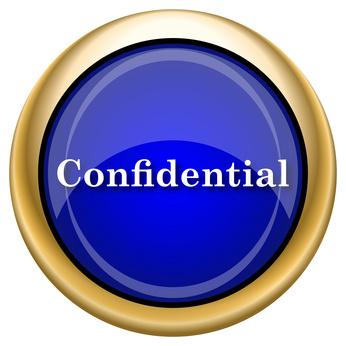
© valentint / Fotolia
This is one of the problems facing "internal" executive coaches, typically HR specialists. As one executive commented to me: "She was pretty good but I couldn't be totally frank with her because ultimately I did not know how far our conversations would travel." There is a fear that someone will implicitly or explicitly remind the HR specialist who they work for and ask them provide some "constructive insights" on the executive in question. This can quickly become a slippery slope.
As an external executive coach, my future is more dependent on maintaining the confidentiality of my coachee's information than my relationship to his or her sponsoring firm. As a result, I leave the control of what information, in what form, and to whom it might be distributed completely with my coachee.
My understanding with the sponsoring HR executive or senior executive is that periodically I have the responsibility to inform them as to whether the coachee is still involved in the coaching process and whether they are making reasonable progress or not. If they want more information, they will have to ask the coachee.

Sharing the Development Plan
My personal preference is to have "two sets of books and nobody goes to jail." The first book is my version of the development plan peppered with reminders of the feedback the executive received which they might otherwise minimize or ignore. The emotional loading of how I frame the need for change, warts and all, is often not intended for consumption by anyone other than the executive. In the second book intended for more public consumption, the developmental actions are redefined to more "politically correct" statements. For example - (First Book) "Your direct reports say you micromanage to the point of bordering on behaving like a control freak" becomes (Second Book) "Continue to improve my ability to delegate and decentralize decision-making to my direct reports" as a list of developmental actions reported back to your boss.
4. Will they be supportive of me as I struggle to change?

Past research of the common competencies of highly effective people in enabling roles like counseling, coaching, and mentoring indicates a common personal characteristic of what some call "unconditional positive regard." This appears as a form of basic respect for the executive attempting to change and patience with the executive while he or she is letting go of old, familiar behavior and trying to adopt new behavior. Sometimes it is "two steps forward and one step back."
Or as a client of mine once said when he called me, "I missed another opportunity to try the new behavior this morning. I wanted to kick myself!"
Interview Prompt:
Ask the coach candidate for some examples of how they have dealt with resistance to change from past coachees. Ask them about the times they used what they might refer to a "tough love" approach and what they actually said and did.
What do you want to avoid? Coaches who are too nondirective and cannot set some clear boundaries for you to work within. Or coaches who are too harsh and make you feel embarrassed or even belittled. Boundaries, limits, and feedback can be conveyed without making you feel belittled or defensive. Again, respect, patience, and consistency reigns.
For most coaching situations, the ultimate goal is to make you more self-aware and self-correcting.The baseline is the development plan and you will not master it overnight. How will the coach engage you and enable you to become self-aware and self-correcting compared with actions described in the development plan?
One reserve questions to ask:
"Have they ever been fired by a coachee? What were the circumstances?"
5. Evidence of Past Success
Executive coaching as a profession is maybe at a stage of maturity of early adolescence on its best day. For a process that can be very potent if conducted effectively, there are no state licensing requirements in the U.S. typical of other more mature professions.
There is a whole cottage industry that has emerged in "certifying" executive coaches. Everybody and his brother is in the coach certification business. (Just search "executive coach certification" on the internet). The quality of these certification programs is all over the map. Some certification programs use training that incorporates empirical research on what works and what does not balanced with practical experience in the field. Others look more like they were created by two guys and a truck who got full of themselves on a weekend bender.
Certification is typically a rite of passage into the field. In good certification programs, there is usually training in a typical coaching process that includes diagnosis, feedback, confidentiality, development planning, progress evaluation, and follow up coaching. Better programs also require multiple demonstrations of competency in real coaching engagements with reasonable outcomes and satisfied clients. The really good programs are highly selective and only a select few are certified. Other programs appear to certify anyone who pays a hefty fee and fogs a mirror.
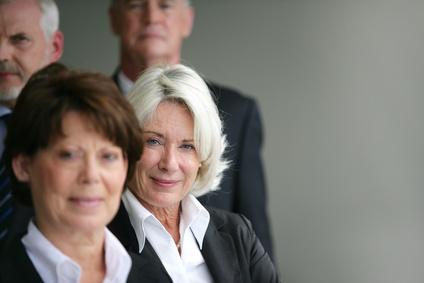
We are going to bypass evaluating all of these different certification programs by assuming that some form of certification is better than none, and if the coach can demonstrate that the certification process was selective, all the better.
Instead, I take the traditional David McClelland approach to assessing competencies. David was the grandfather of performance-based differentiating competencies of top vs. average performers. From his extensive experience, David suggested identifying the differentiating competencies leading to superior results as "however acquired." So the focus is on the coach capabilities that are associated with superior outcomes and not on the journey of how someone got there. There are some people who want to become coaches who are natural enablers who acquire the necessary tools to apply their "right stuff" to the coaching process and take to it like ducks to water. There are others who have only some of the "right stuff," and despite learning all of the tools, struggle to excel at coaching a broad range of people.
Evidence of past successes with clients who are like you is probably your best bet. Recommendations, endorsements, and clients willing to serve as references who have developmental challenges similar to yours are an encouraging and typically validating sign that this candidate knows how to help you.
6. Evidence of how they will work with you.
In your selection interview, while part of the rapport building will be distorted by the coach trying to present themselves in the best light, selling themselves if you will, the interaction is also a good initial indication of what they will be like to work with.
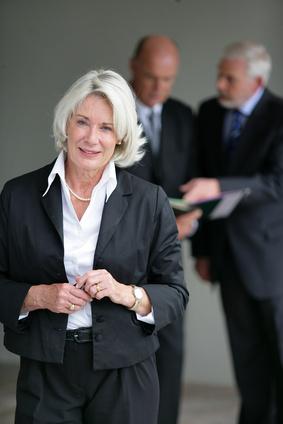
Upon reflection after your selection interview:
- Did they listen to you with patience and interest for more understanding?
- Beyond listening, did they offer some comments or ideas that expanded how you thought about the need or considered the possible development actions and solutions?
- Were they easy to talk to?
- Did they display accurate empathy - perceiving how you felt and not just what you were thinking?
- Did they demonstrate respect for you, the challenges you face, and accept those aspects of yourself that you consider to be weaknesses or shortcomings.
- Were they too directive? Or were they too nondirective and not proactive enough to help you have a better understanding of your need and the possible coaching process to address that need?
- Did they jump prematurely to conclusions?
- Did the coaching process they propose seem reasonable?
- Towards the end of the interview, can they describe how they have already begun to adapt their typical style to yours and your apparent preferences? Adaptive coaching should be a conscious process for the coach.
7. Finally - Trust your gut.
Western business practices have focused on removing emotion from decision-making in an effort to make decisions more rational and fact-based. One price we have paid for this is a lack of appreciation for intuition and the use of unconscious processes. {See more on the Silent Lightning website about Executive Presence, Communication and Influence]. More recent neuroscience research suggests this is an untapped or ignored resource that many of us would benefit from by mastering. (The other price we paid is the frequent decimation of "passion for the business.")
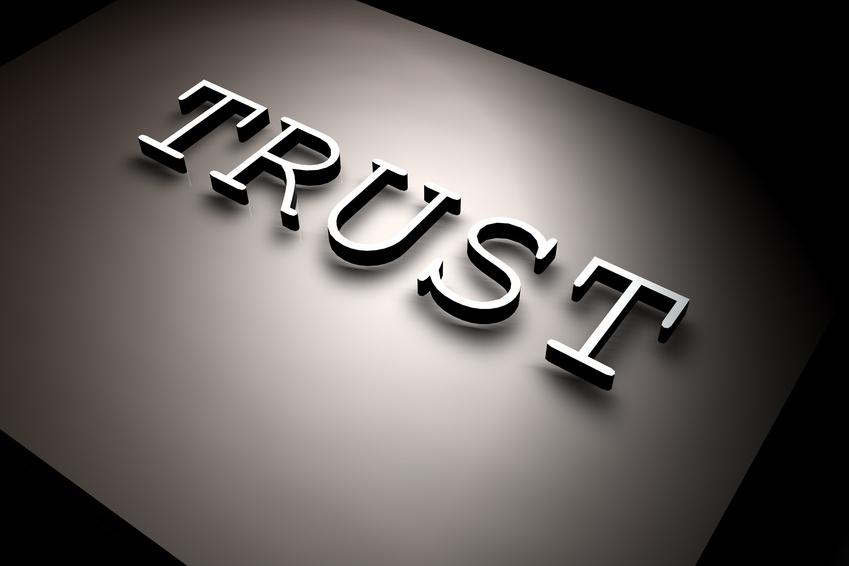
If the candidates meet all of the other logical criteria, and you have more than one qualified candidate to choose from, trust your gut. Pick the one you would like to work with. Your unconscious mind will know which one you prefer. After the fact, you will rationalize why. Maybe they remind you of a teacher who really resonated with you. Maybe they remind you of an older and wiser cousin or aunt you could safely open up to. Maybe they remind you of a past colleague who would help you think things through, offer constructive push back, and never tried to make decisions for you.
In my clinical training years ago, after a relatively exhaustive series of diagnostic interviews and psychosocial history taking with a troubled or difficult identified client and their family, the lead psychoanalytically-oriented psychiatrist would ask: "Did you like him?"
Such a simple final question.
But if the therapist's gut said "no," you were probably not the person to work with that patient. Whatever unconscious reaction of baggage you had, it would create friction instead of greasing the skids when the going got tough.
E. Interview Guide
Feel free to download this complementary interview guide to help you interview and select the executive coach who is best for you.

An Interview Guide based on the content of this webpage that can be used to screen likely candidates as your next individual executive coach. Includes questions and room for ratings and comments.
Download FileVideo 5 reviews the content and process for using the interview guide as a tool to help you make a more accurate selection of a coach who is a good fit for you and your needs. Get the free Interview guide at
http://wiznami.com/how-to-select-an-executive-coach.shtml#Interview%20Guide. This is Video 5 of 6 of the Wiznami series "How to Select an Executive Coach Who is Right for You" on the Gary Myszkowski YouTube Channel.

An effective coach adapts his or her preferred coaching style to you, how you process information, and how you prefer to be influenced and/or deal with resistance to change.
Being client-centered means that they start where you are, not where they want you to be or where they prefer to be.
In order for the adaptive coaching process to be effective, there needs to be a common expectation that either the coach or the executive should feel free at any time to raise questions or provide feedback about the quality of the process or the behavior or performance of either participant. Video 6 briefly describes how to set the tone from the beginning of this professional relationship about how to have "a discussion about the discussion." This is Video 6 of 6 of the Wiznami series "How to Select an Executive Coach Who is Right for You" on the Gary Myszkowski YouTube Channel.
At another time, the same coach might say: ' Today you came to the coaching session with a specific situation. You wanted my opinion about that situation. It seemed like you wanted some guidance. I offered you several alternatives and their respective pros and cons. You came up with your own hybrid solution among those alternatives. Was that what you wanted today?"
Give yourself license to stop the process and have "a conversation about the conversation." For you, what is the coach doing that is working (that you want to reinforce) and what is not as effective for your needs or preferences? An effective coach will want this feedback in order to adapt accordingly.
Beware the coach who does not seem interested in this feedback, seems to be inflexible or stuck in one style (like the maddening indirect style of: "Well, what do you think?"), or gravitates towards how he or she wants to conduct the session, without regard for your needs or preferences that day. Make a reasonable effort to enable each ohter to be successful. It should be a partenrship.
And remember, "if the coach doesn't fit, you can ask him to quit."
You can always select a new coach, go back a step or two, and then continue on your learning journey. Hopefully, with a good selection process, you will never have to go there.
Good luck and best wishes for a successful growth and learning experience. Be a life-long learner!
Let me know if I can be of any further help.
###
Wiznami Corp. is an a senior executive coaching service based in Naples, Florida.

